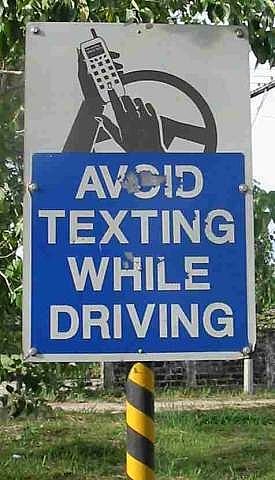
We keep hearing about transportation accidents — even fatalities — because people are compulsively texting. There’s something deeply wrong with a compulsive need to stay in touch. It suggests an unwillingness that has become an “inability” to be comfortable with one’s own mind. This is why most people don’t read, engage in discussions about ideas, or — at the root of it all — think. They cannot stand the presence of their own thoughts. Consequently, they crave the usually mindless and ever-present chatter of another. This chatter fills the void where substantive thoughts and ideas might have been. I’m not suggesting that everyone who texts is like this. Texting is useful as a brief, supplemental form of communication about very limited, concrete matters (such as, “What time did you say we’re meeting?” Or: “What did you want me to get at the grocery store?”). But anyone who so compulsively texts that he or she risks life and limb really has a problem that predated the tragedy we eventually hear about. As people lose their independent reasoning — or never had any in the first place — they become uncomfortable, or even terrified, at the prospect of being alone. Why? Because being alone means you must think. Just as the rare thinking, introspective and genuinely intelligent person craves some time alone — indeed, becomes upset if he or she doesn’t get it — the opposite type of person becomes neurotically anxious if forced to confront the mental torture of his or her own consciousness. Among other factors, I will extend my sarcastic “thank yous” for this intellectual (and sometimes literal) wreckage to: contemporary education, especially those government run public schools who do such a great job of graduating intelligent and independent thinkers.
